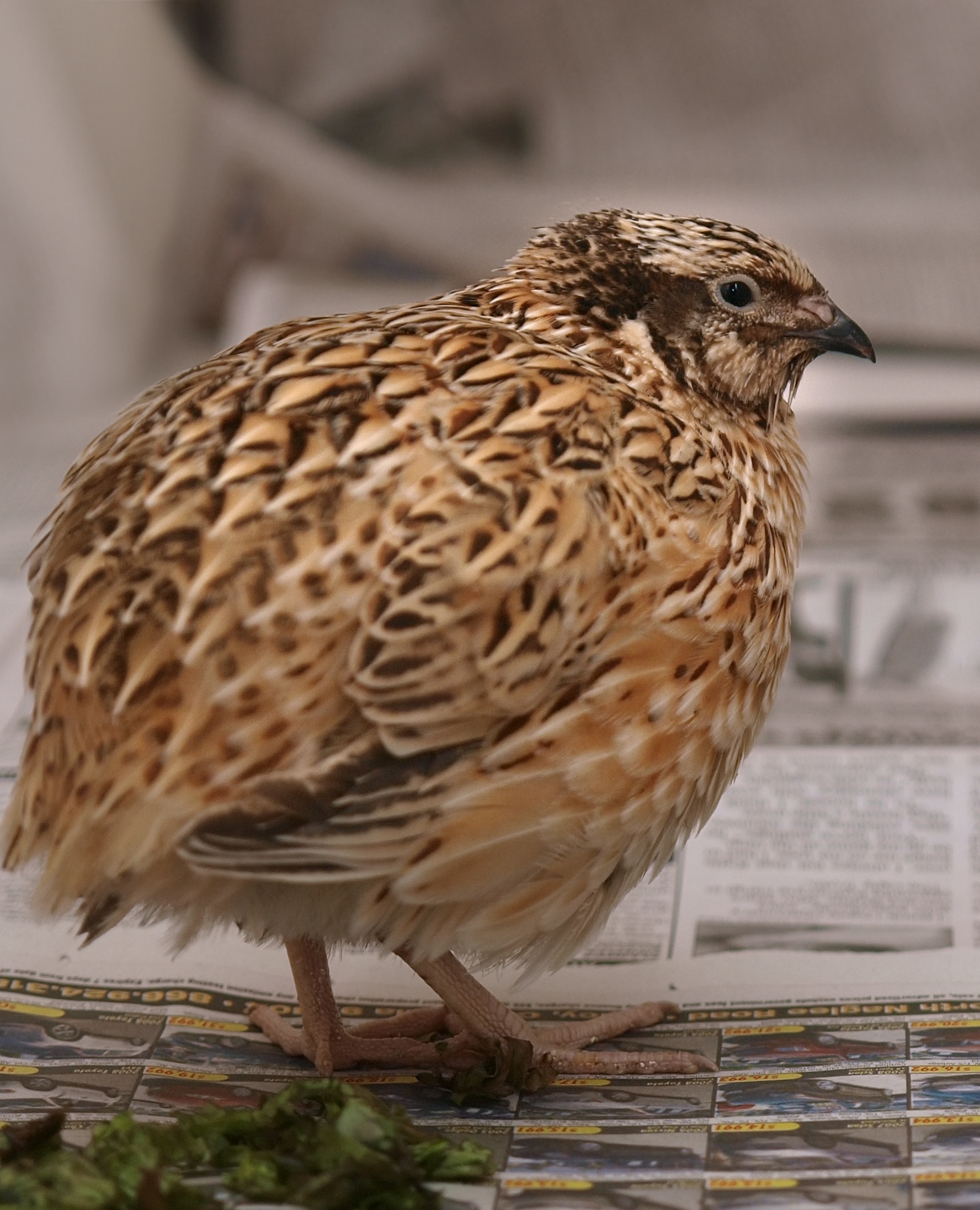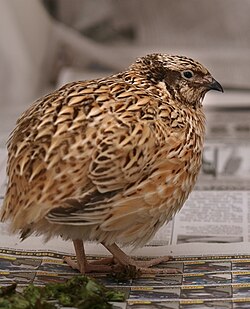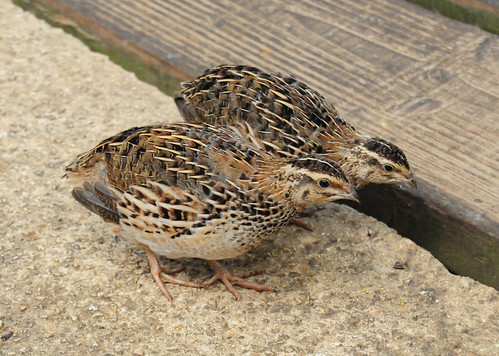Japanese Quail

The Japanese quail, also known as coturnix quail, Coturnix japonica, is a species of Old World quail found in East Asia. They are a migratory species, breeding in Manchuria, southeastern Siberia, northern Japan, and the Korean Peninsula, and wintering in the south of Japan and southern China. They dwell in grasslands and cultivated fields. The plumage of the pharaoh Japanese quail breed is a speckled yellow-brown, with a creamy white strip above the eye. Adults are about 20 cm (7.9 in) in length. The species is abundant across most of its range. Currently there are a few true breeding mutations of the Japanese quail, the breeds from the United States are: Texas A&M, English White, Golden Range, Red Range, Italian, Manchurian, Tibetan, Rosetta, Scarlett, Roux Dilute and Golden Tuxedo.
Japanese quail have been reared in India and Southeast Asia for their meat and eggs. The species is seen as a good "dual-purpose bird". In India, Krishi Vigyan Kendra Kannur under Kerala Agricultural University has produced video album containing songs and visuals on Japanese quail production under Creative Extension series.
Japanese quail eggs have orbited the Earth in several Soviet and Russian spacecraft, including the Bion 5 satellite and the Salyut 6 and Mir space stations. In March 1990, eggs on Mir were successfully incubated and hatched.
| Japanese Quail | |
|---|---|
 | |
| Conservation status | |
| Scientific classification | |
| Kingdom: | Animalia |
| Phylum: | Chordata |
| Class: | Aves |
| Order: | Galliformes |
| Family: | Phasianidae |
| Subfamily: | Perdicinae |
| Genus: | Coturnix |
| Species: | C. japonica |
| Binomial name | |
| Coturnix japonica Temminck & Schlegel, 1849 | |





videos

No comments:
Post a Comment